100 Interesting Things 51-55: Art Appreciation and GRRRRR
This post is part of a series I started after reading “Notice, Collect, Share” by Russell Davies. I’m more inspired than ever to get back into the habit of…noticing, collecting and sharing. As part of that return to habit, I’m going to try and find five things that interest me every week, and share them here on my blog. 5 things per week, for 20 weeks, equals 100 Interesting things. Maybe one of these things will inspire you. Maybe one of them will inspire me. We’ll all learn something along the way.
I’ve also been tracking all of the stuff I find in my “Deck Of Interesting” - it’s screenshots, links, and assorted notes of things that might make into one of these posts.
#51 Ways Of Looking At Art I’ve been staying with my in-laws over the holidays, and have part of that has meant enjoying browsing their incredibly eclectic bookshelves.
One of the things I found was this deck of cards: Ways Of Looking At Art.
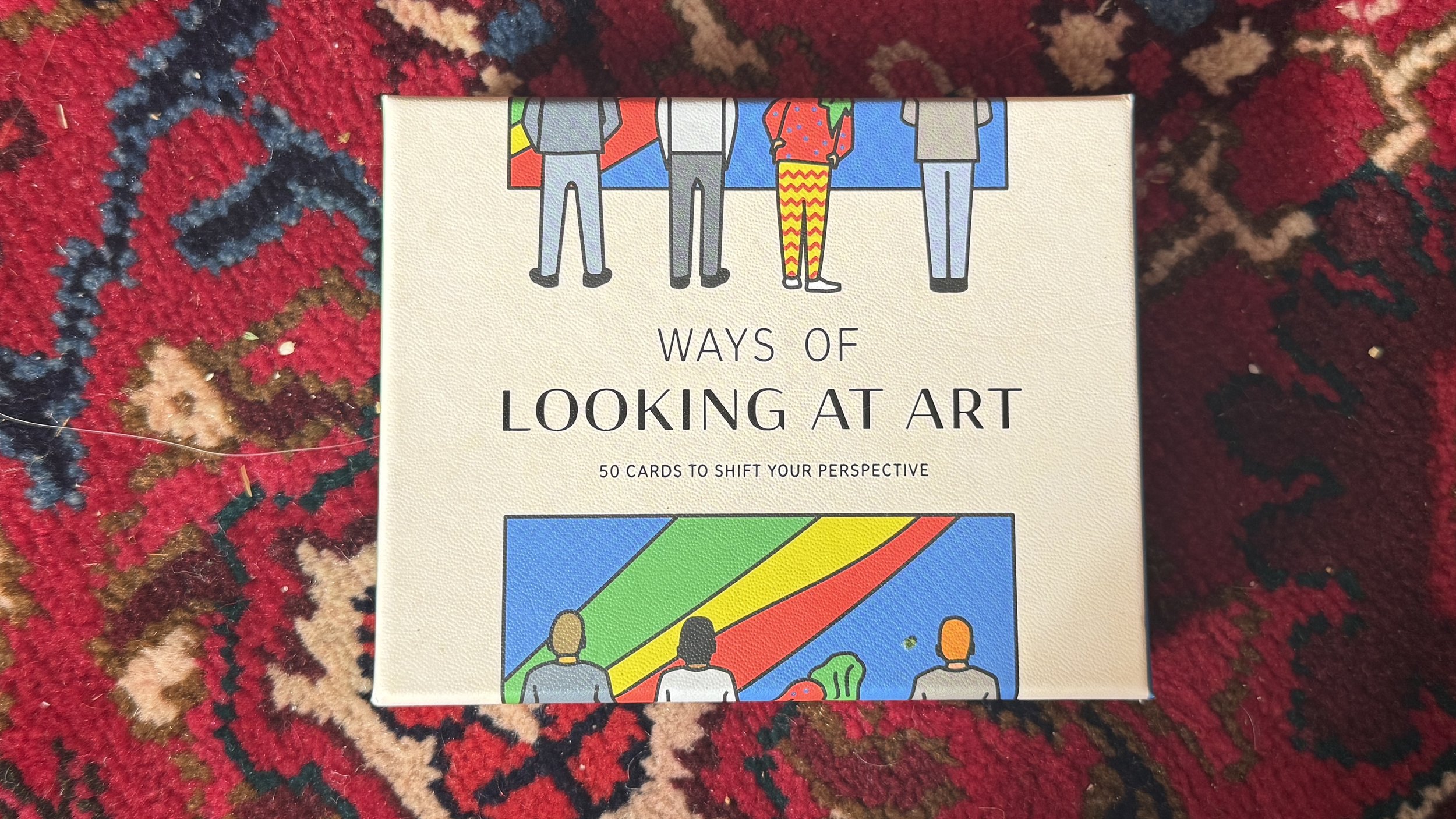
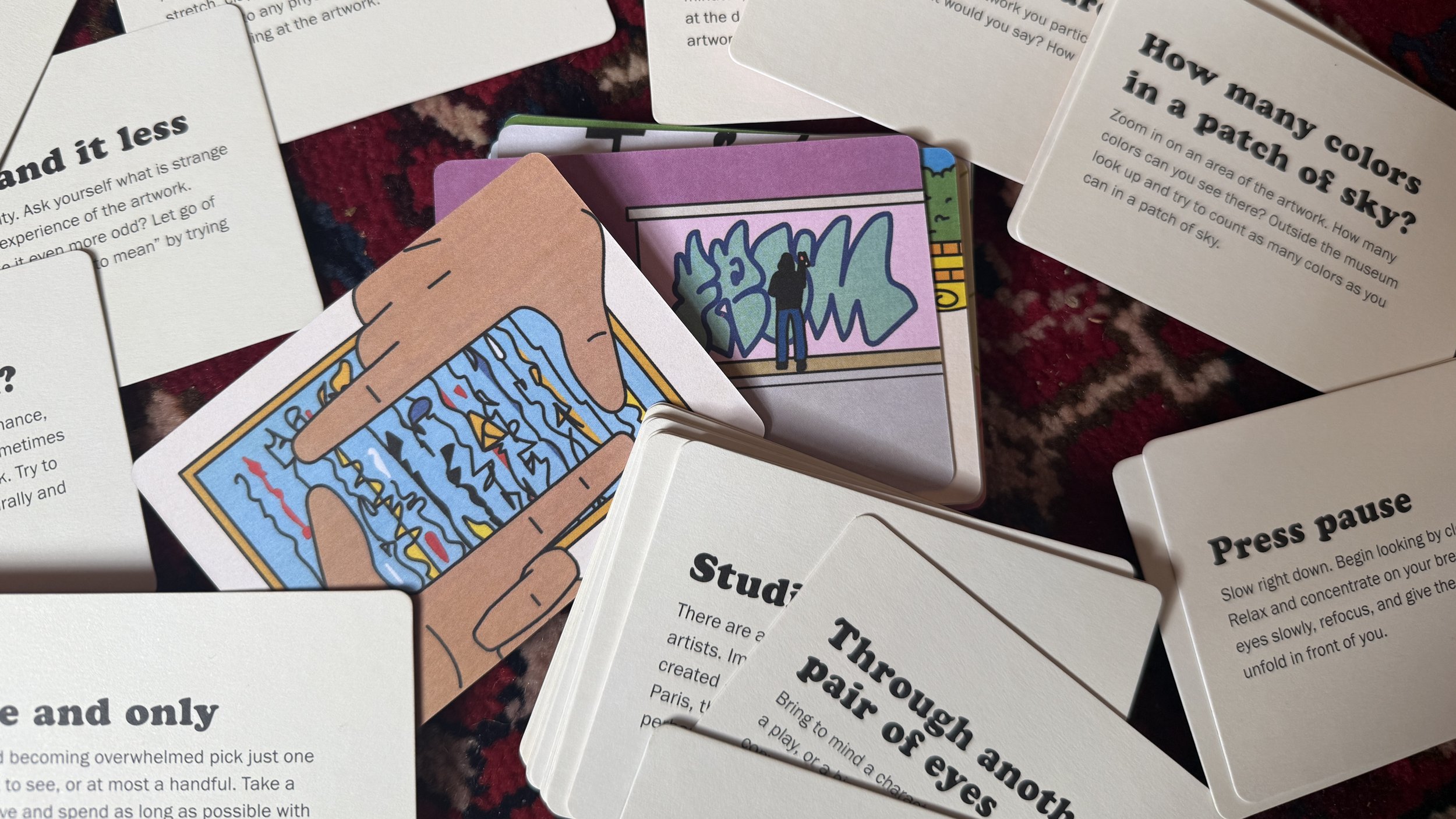
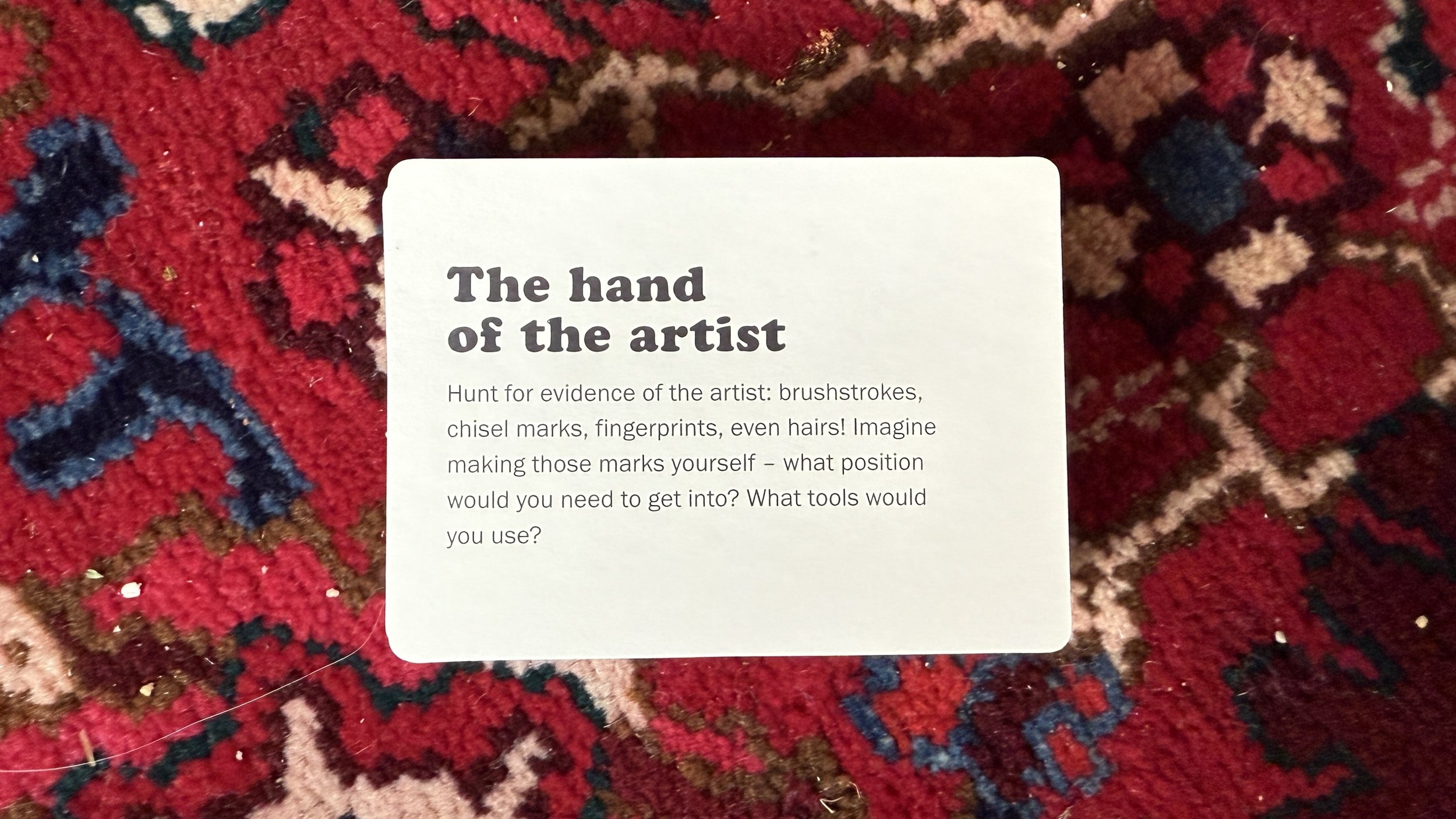


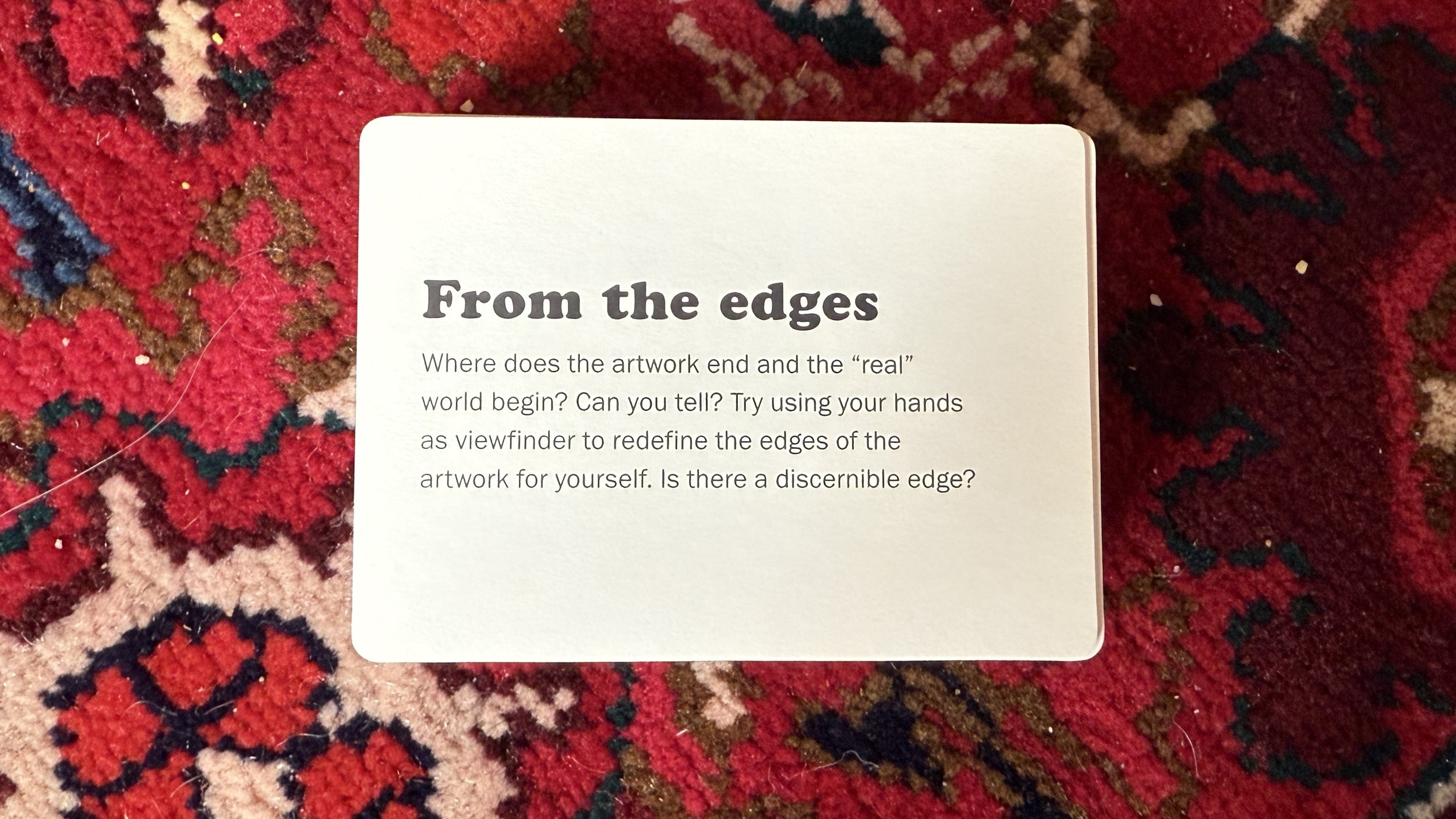

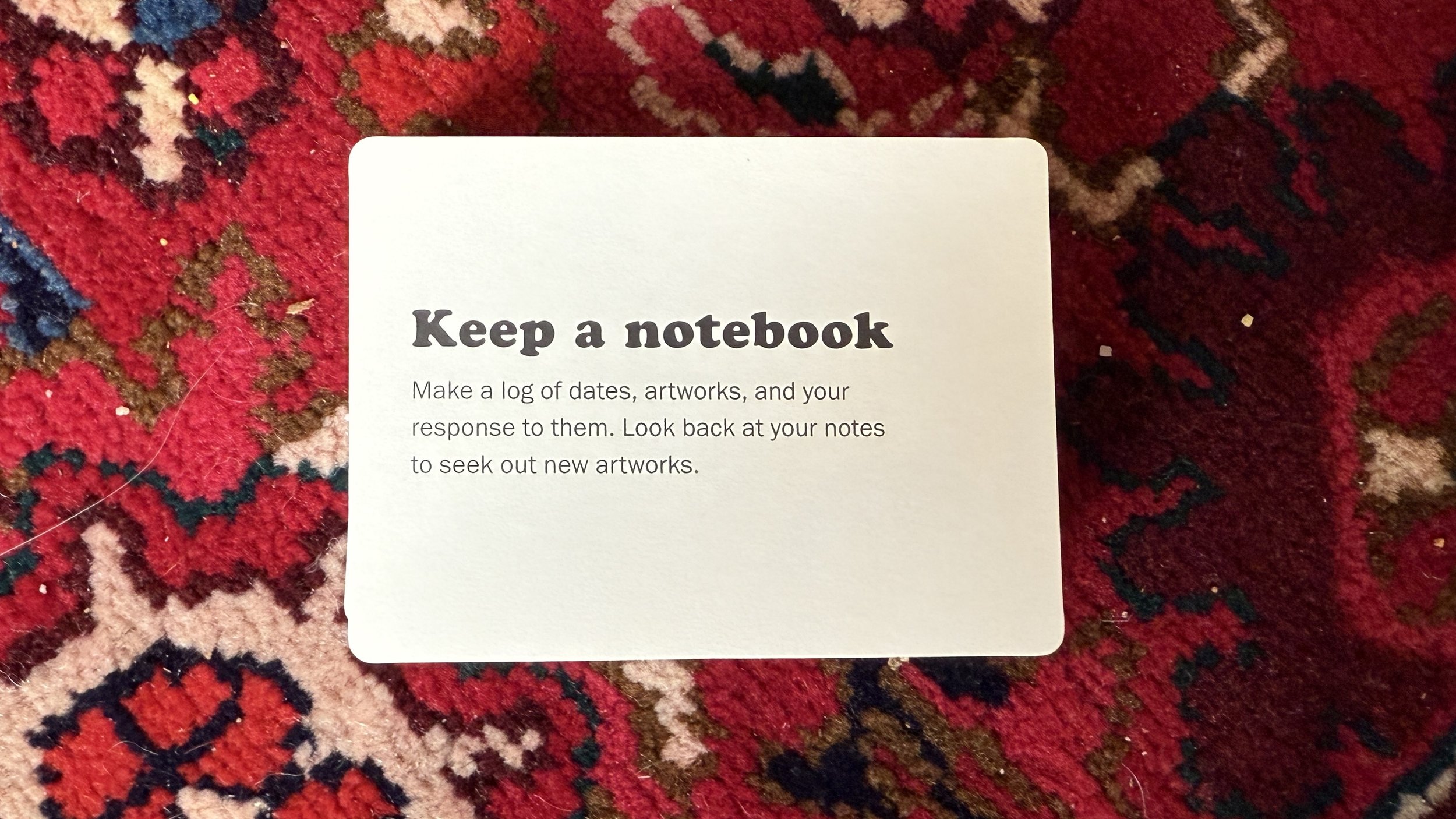
For me, this is a reminder that there are so many different ways of analyzing and thinking about the world around us, and that this isn’t limited to just art. it’s also a reminder that we should spend more time looking at at things (and this series of blog posts is me trying to do that.).
This could have easily been a book. Putting it in this format helps us break out of our usual patterns. Shuffling the deck forces us to use different cards and therefore different thinking tools to process what we’re seeing. It forces new perspectives.
I’m a big fan of the card-format of content and will probably write a post soon on decks that I’ve got back at my desk.
It looks like you can find the Ways Of Looking At Art on Amazon here.
#52 Art Is Therapy One of the other things I browsed through over holidays is the book “Art Is Therapy” that was a catalogue to accompany an exhibition at the the Rijksmuseum in The Netherlands. From the intro to it:
“The intention was to raise - and then answer in a distinctive way - the larger question of what the purpose of art really is. Most significantly, it suggested that art could be looked to , and enjoyed for, its powerfully therapeutic effect. In our view, the emphasis should be not on where art comes from or who made it, but what it can do for you - an ordinary visitor with the concerns that trouble us all.”
I browsed through the entire book and it makes me want to visit more museums and, like the cards above, appreciate and think about art more.
#53 Destructor Is The Best Comic You’ve Never Read 15 years ago Sean Collins and Matt Wiegle unleashed Destructor on Croc-Town and the audience was treated to a masterclass in visual storytelling and restrained worldbuiding.
The mysterious world that Destructor inhabits is a cobination of humanoid animals, high-technology, magic spirits, and feudalism.
The protagonist himself, Destructor, is also never fully explained: Is he a robot? A man in some sort of armor? Is he a hero or a villain? There are suggestions, but no clear explanations. Exposition is limited, and it understanding this world feels like looking at a distant mountain.
The result is a simple but powerful series of stories that leave you wanting more. They work because of, not despite, the lack of explanation for things.
Unfortunately, the duo who created Destructor parted ways about 8 years ago and stopped updating the site. Shortly after that, the site went offline.
I reached out to Sean a few times to see if I could get access to the files, but he said he didn’t have them anymore. You can still read through the entire archive via the Wayback Machine
Let this be a solemn reminder that digital media is more fleeting than we think. Back up and save anything you love.
#54 Undersea Cables In 1996, Wired Magazine sent author Neal Stephenson around the world to see where fibreoptic cables, the backbone of the internet, were being layed. The opening paragraph of his extremely lenghty article (“Mother Earth Mother Board”) remains one of the best ledes of all time:
INFORMATION MOVES, OR we move to it. Moving to it has rarely been popular and is growing unfashionable; nowadays we demand that the information come to us. This can be accomplished in three basic ways: moving physical media around, broadcasting radiation through space, and sending signals through wires. This article is about what will, for a short time anyway, be the biggest and best wire ever made.
30 years later and even though we’re living a world of Wi-Fi these cables are more important than ever. The New York Times has a fantastic article about how critical these are, and how to repair them, in a longer multimedia piece called “Undersea Surgeons.”
Related to this, I’ve had the book “Where The Wizards Stay Up Late” sitting on my bookshelf half-read for the last year. It’s about the crew of people who concieved of and then built the earliest versions of the internet.
All of it serves as reminder that the interent we use for almost everything doesn’t exist in the aether: it needs infrastructure and physicality to function.
Mother Earth Mother Board - Wired article by Neal Stephenson
Sharing his article almost in its entirety:
To come up with the idea in the first place. To distill it, and hone it, and edit and re-edit it. To sell it in the first meeting (and the next one and next one and next one.) To craft it. To defend it. All of that requires passion. And passion, be that for a child or a partner or an idea, is a fundamentally unbalanced thing.
Maybe that's why they call it falling in love. It's a complete loss of balance.
'Grrrrr' doesn't understand the term work/life balance because it can't separate them into these neat and tidy boxes, where work ends at 5 and only starts up again at 9am the next day.
When you fall in love with an idea, the idea of leaving it there to just sit because the clock strikes 5pm on a weekday is almost non-sensical.
I have never met legends like Colleen DeCourcy or David Droga or Lee Clow but I would bet every dollar I have that their advertising brains don't turn off when the clock strikes 5pm. I would venture that 5pm has as much importance to them as the weight of their left leg. It's a number but it's an irrelevant one.
'Grrrrr' doesn't care what time it is. 'Grrrrr' just wants to get the thing made, and will do everything and anything to do it.
I've worked with some incredibly talented and successful people in my career. And every single one of them's 'Grrrrr" dwarfed their talent. When these people dug their teeth into an idea they loved, it was not even a question that it would get made. They wouldn't let it not get made.




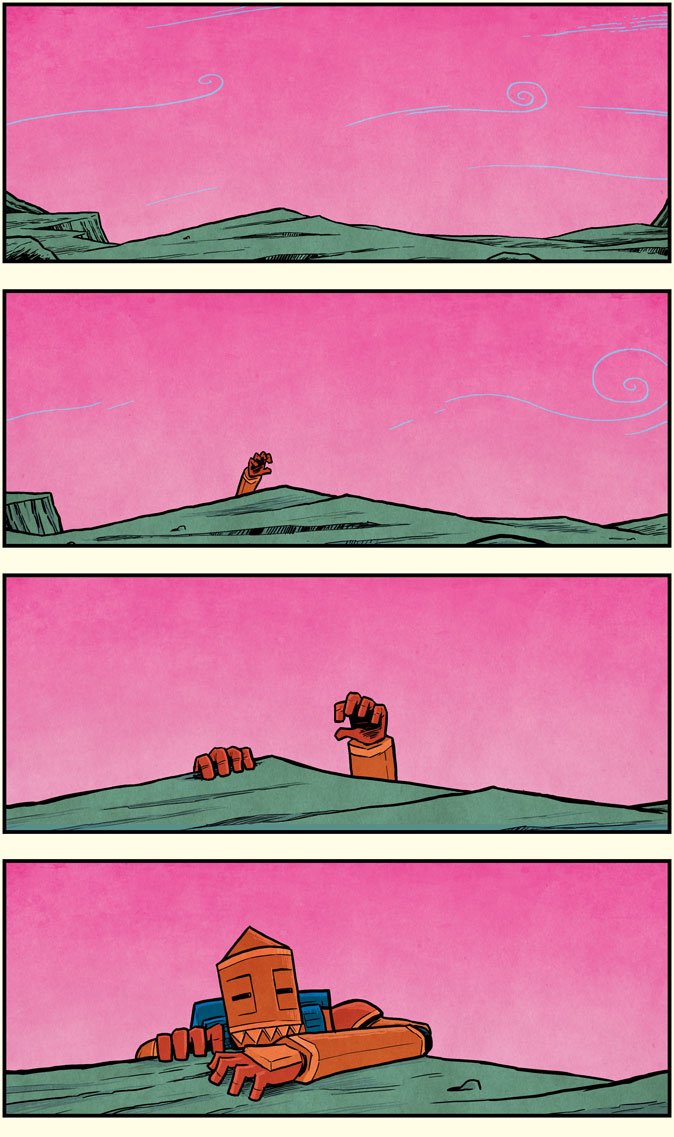


Drones, Sci-Fi, Books, Writing